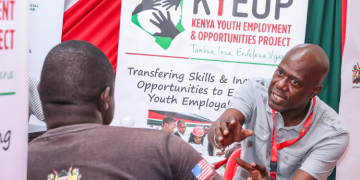In the heart of western Kenya, specifically among the Luo community, widow inheritance—locally known as tero or tero cholla—remains one of the most debated cultural practices in the country.
Traditionally, members of the Luo Council of Elders argued that it was a mechanism to ensure widows received emotional, sexual, and material support after the death of their husbands.
But today, the practice stands at a crossroads, challenged by modern values, health concerns, and shifting gender dynamics.
Luo Community Continuity
Historically, widow inheritance was a ritual that marked the end of mourning and the beginning of a new chapter for the bereaved family.
According to Luo customs, a widow is considered “impure” after her husband’s death, and to cleanse her, a male relative of the deceased, often a brother, would inherit the widow, symbolically or sexually, depending on her age and circumstances.
The ritual involved a visit to the widow’s natal home, the slaughtering of a goat (cholla), and a ceremonial meal shared between the widow and her inheritor.
For older widows, inheritance could be symbolic, involving companionship without sexual relations.
But for younger widows, sexual consummation was considered essential.
Even widowers, upon losing their first wives, could receive a younger sister of the deceased as a replacement, a practice that raised ethical and gender concerns.
In some cases, the inheritor would build a new house with the widow, signifying a fresh start.
Joseph Gor, of the Luo Council of Elders, argues that widow inheritance preserves family continuity and offers emotional support.
“A widow becomes lonely after the death of her husband. Inheritance provides comfort and someone to help raise the children,” he said in a past interview.
Cleansing Rituals
A 2022 study published in Frontiers in Global Women’s Health interviewed 27 Luo widows from Nyanza Region who had undergone sexual cleansing, and all women described being pressured, shamed, and threatened.
Most widows are also forced, as they are left with no source of income or reliable source of livelihood.
In a cleansing ritual, widows are forced to sleep with strangers, sometimes mentally ill or intoxicated men, to ward off evil spirits.
The ritual typically begins three days after burial, with elders overseeing the act to ensure it happens.
Use of protection during Luo cleansing rituals is considered culturally inappropriate and often beyond the widow’s ability to negotiate.
Today, the ritual has become commercialized, with “cleansers” charging up to Ksh20,000.
Effects of Widow Inheritance Today
Multiple studies and local surveys show that widowed women have far higher HIV prevalence than married or never-married women.
Recent county-level data from Siaya (Nyanza) found overall weighted HIV prevalence of 26.2% among widows versus 17.1% among married women (2011–2022 analyses; paper published 2025).
Widowed women had roughly six times the odds of being HIV positive compared with married women in adjusted analysis.
HIV prevalence among inherited widows neared 60–64% in some high-burden localities in Nyanza.
In Kisumu County, where widow inheritance is most common, HIV prevalence stands at 19.9%, nearly 3.4 times higher than the national average.
Women in the region are disproportionately affected, with a prevalence of 21.2% compared to 18.3% for men.
Also Read: Essential Property Laws to Consider When Buying Land in Kenya
Kisumu alone accounts for 9.5% of all people living with HIV in Kenya.
Estimates indicate there are about 8 million widows in Kenya overall.
Experts blame “professional inheritors”, men who inherit widows serially for money or sex, as they rarely offer support and often spread infections.
A Tradition Under Scrutiny
Widow inheritance among the Luo is no longer just a cultural rite; it is a contested practice with serious health consequences.
Despite constitutional protections and growing awareness, enforcement remains weak.
Also Read: Why No Priest Wanted to Baptize Raila and His Siblings
Cultural pressure, stigma, and fear keep many widows silent, and even though NGOs and community leaders are working to reform the practice, progress is slow.
They aim to get policymakers to confront the harm behind the ritual and protect widows from forced sexual inheritance.
Follow our WhatsApp Channel and X Account for real-time news updates.










































































